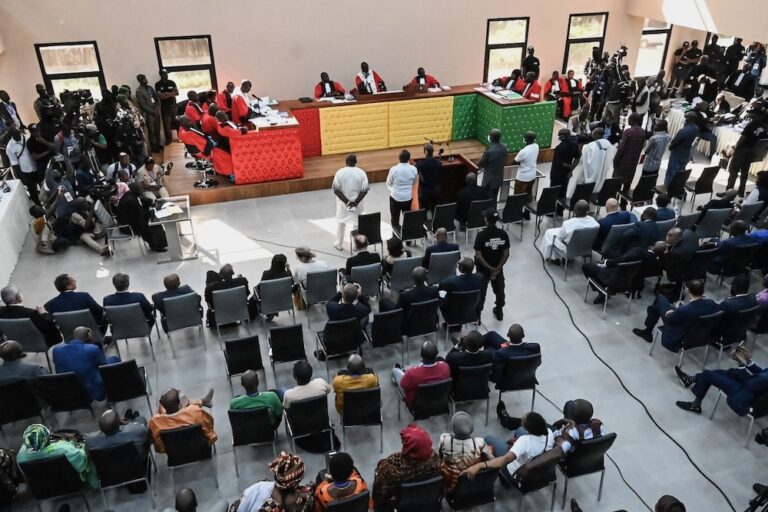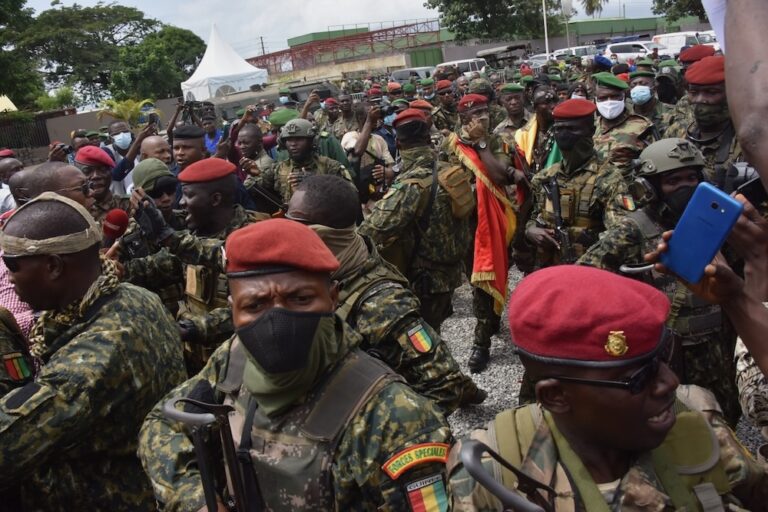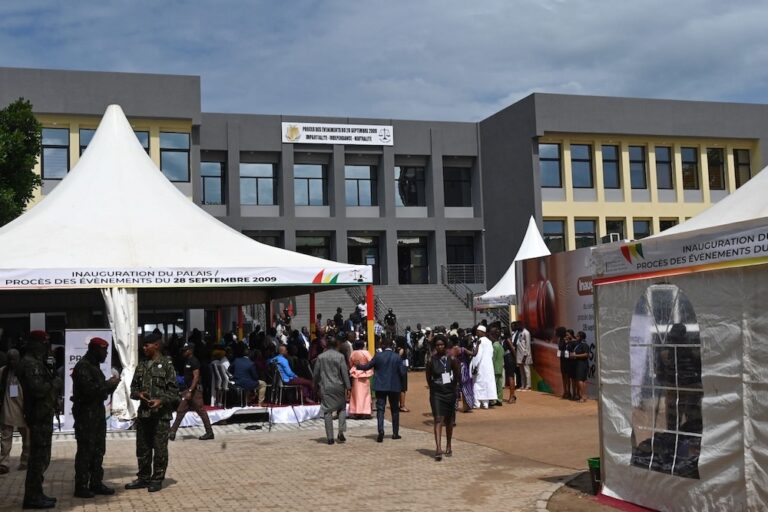The National Communications Council reminded the state-owned media that "access by political parties, trade unions, NGOs and ordinary citizens to all public media is an inalienable right (. . .)"
(MFWA/IFEX) – Guinea’s media regulatory body, the National Communications Council (CNC), on April 13, 2011 expressed concern over the state-owned media’s refusal to cover the activities of the country’s opposition parties.
The Media Foundation for West Africa’s (MFWA) correspondent reported that the state media, which includes the Radio and Television of Guinea (RTG), “Horoya”, the national daily newspaper, Guinea News Agency (AGP) and rural radios, have a history of tilting their programmes and news coverage in favour of ruling governments.
A CNC communiqué, signed by the council’s president, Madame Martine Condé, reminded the state-owned media that “access by political parties, trade unions, NGOs and ordinary citizens to all the public media is an inalienable right and that they have access to airtime, even if they do not use it”.
Journalists working for the state-owned media in Guinea have since independence in 1958 worked under the strict direction of the one-party government or the military juntas that succeeded it. The state-owned media have had no room to exercise editorial independence. Now, under a newly- developing democratic governance, the state-owned media’s subservience to the government of the day is coming under public pressure.
The CNC said it has set itself the objective of ushering in a free and independent media, one that observes a professional code of ethics, with a view to ensuring the consolidation of democracy in Guinea.


